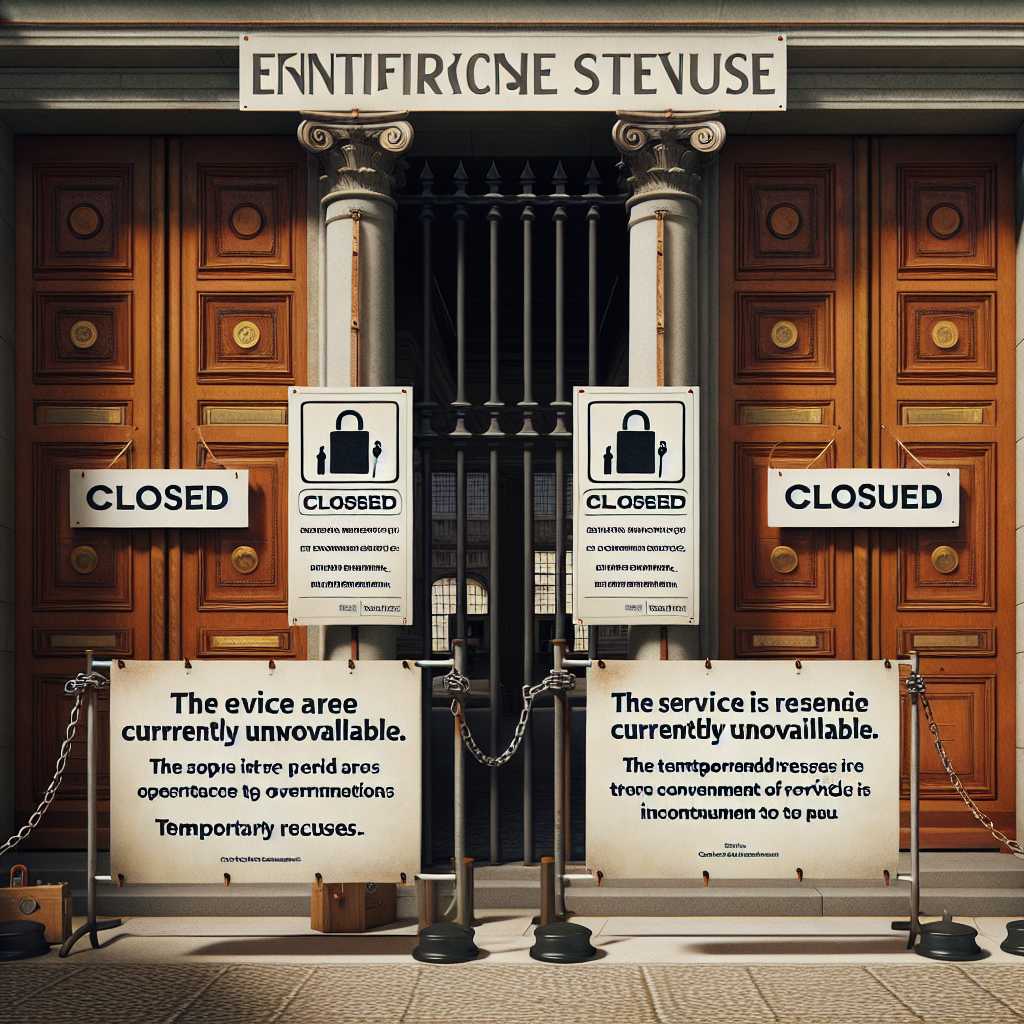Understanding Government Shutdown: An In-Depth Analysis
Government shutdowns occur when a national government suspends the provision of services either in full or in part due to the unavailability of funds approved by their legislatures. These shutdowns happen due to various reasons, such as political disagreements over budget allocations or policy directives, most often in countries where the approval of such finances requires a legal endorsement from their legislature, like in the United States. This article delves into the different aspects of government shutdowns, including their causes, effects, and historical instances, to provide an unbiased examination of this critical public administration event.
Causes of Government Shutdown
Political Standoffs and Budget Impasses
A government shutdown often results from an impasse between the executive branch and the legislative body regarding budget allocations or policy matters. Sometimes specific legislative factions may refuse to fund government operations without concessions on certain laws or changes in spending.
Fiscal Deadlines Budgetary processes are generally governed by fiscal deadlines. When lawmakers are unable to approve a budget before these deadlines—owing to disagreements or prolonged negotiations—a shutdown can occur. Controversial Issues Shutdowns are more likely when the budget is tied to controversial issues such as immigration, health policy reform, or national security, which tend to result in heightened political standoffs. Consequences of Government Shutdown
Impact on Public Services
Controversial Issues Shutdowns are more likely when the budget is tied to controversial issues such as immigration, health policy reform, or national security, which tend to result in heightened political standoffs. Consequences of Government Shutdown
Impact on Public Services
Consequences of Government Shutdown
Impact on Public Services
Non-essential government services are typically suspended during a shutdown. These may include museums, national parks, and various administrative services. While safety and some public welfare services continue to function, they may do so with limitations.
Effects on Government Employees Many government workers may be furloughed; that is, put on unpaid leave. Those deemed ‘essential’ may be required to work without immediate payment, causing financial strain for employees and their families. Economic Ramifications
Economic Ramifications
We often see notable economic impacts due to a government shutdown—reduction in consumer spending due to furloughed employees, delayed government contracts affecting businesses, and dampening investor confidence can lead to economic slowdowns during prolonged shutdowns.
Historical Examples of Government Shutdown
Partial Shutdowns There have been instances where only parts of the government ceased operation. These can be less impactful but can highlight department-specific funding issues. Extended Shutdowns
Extended Shutdowns
US history has seen several extended shutdowns lasting beyond a few days—some running for weeks. The 1995-1996 and the 2018-2019 shutdowns are notable examples where political stalemates led to prolonged halts in governmental operations.
Stable Nations vs. Nations in Crisis
While stable democracies with built-in checks and balances like the United States have endured shutdowns without systemic crises, similar events in nations undergoing political unrest or with weaker institutional frameworks can exacerbate existing issues.
Lessons Learned
Shutdown events lead governments to reflect on the negotiation process and often bring about changes in policy and procedural approaches to reduce future occurrences. They also influence voter opinions on governments’ effectiveness in managing public affairs.
Planning and Prevention
Preventive strategies may include advancing dialogues across political divides before fiscal deadlines approach or designing automatic continuing resolutions that ensure funding at baseline levels in case of a legislative impasse.
